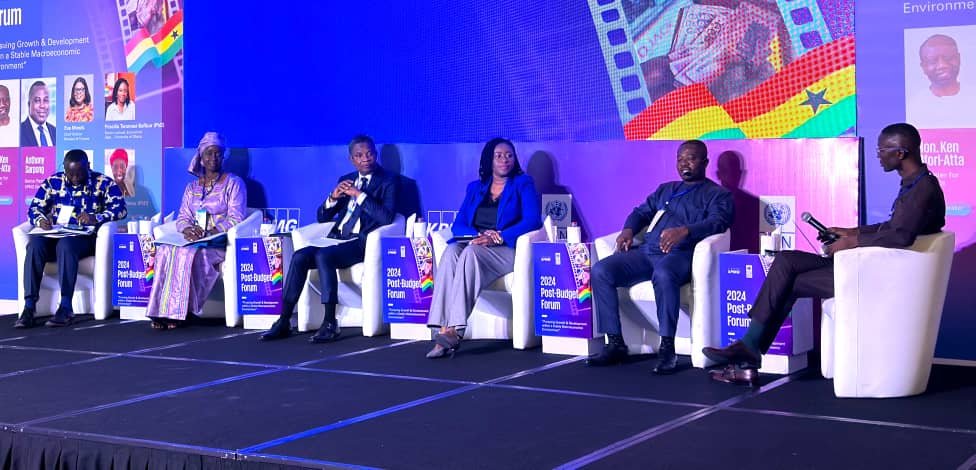Stakeholders at Ghana’s 2024 post-budget forum organized by KPMG in partnership with the United Nations Development Programme (UNDP), called for more private-public partnerships to advance economic stability and sustainable development.
“The 2024 budget is to ensure macro-economic stability and provide a conducive environment for businesses to thrive. We are investing in youth empowerment and in key sectors such as tourism, sports, and agriculture. I encourage the private sector to take advantage of these investment opportunities to contribute to efforts in stabilizing the economy”, noted Ms. Eva Mends, Chief Director at the Ministry of Finance.
Prior to the reading of the national budget, KPMG and UNDP conducted a pre-budget survey in October 2023 and the results were discussed with the Ministry of Finance. The pre-budget survey results called for initiatives to review certain tax policies, reduce inflation, and advance the Sustainable Development Goals (SDGs), particularly goals relating to education, health, and economic prosperity, to leave no one behind. The 2024 budget made a projection to mobilize Gh₵ 176.4 billion in revenue to accelerate development. This projection is underpinned by non-oil revenue measures, including tax adjustments on personal tax and value-added tax, and a comprehensive review of the Excise Duty and Stamp Duty Acts.
The budget also provided some tax reliefs including waivers of import duties on certain items including electric vehicles, agricultural machinery/ inputs, medical consumables, raw materials for sanitary pad, and zero-rate VAT on locally produced sanitary pads, and African prints for two more years.
“The revenue and expenditure measures outlined in the 2024 budget are in line with public sentiment expressed in the pre-budget survey. Ghana is still on the road to recovery, and we are not out of the woods yet. Let us work together for a better future”, noted Anthony Sarpong, Senior Partner, KPMG.
Globally, only 15 percent of the 140 SDGs targets are on track at the half-way timeline for the implementation of the goals. Consequently, there is a push for urgent Government action and private sector investments to advance responsible environmental, social and governance (ESG) practices. Ghana’s SDGs financing gap is estimated at $43billion per annum and private sector contributions remain critical.
“Private Sector has a central role in SDGs achievement. The budget is a policy document, outlining the Government’s intent for funding development, so it is good to see the budget aligned with development priorities. However, Government’s allocations in the budget, though commendable, are not sufficient to achieve the SDGs. This calls for more investments from the private sector and development partners to complement the Government’s aspiration”, stated Fatmata Lovetta Sesay, UNDP Senior Economist for Ghana and The Gambia during the post-budget forum panel discussion.
Panelists and participants at the forum called on the Government to put in place stringent measures to ensure that the country maintains economic stability given that no country has absolute control over external shocks.
“There are some aspects of the budget that the Private Sector is happy with but not with others. We know that without tax, there can be no development and businesses have no issue paying taxes, but the issue is excessive taxation. We are calling for a more comprehensive good business environment with a review of excessive taxes and policies”, noted Mr. Seth Twum Akwaboah, CEO of Association of Ghana Industries.
Other panelists at the forum include Mr. Kofi Frempong-Kore, Head of Tax at KPMG, Dr Priscilla Twumasi-Baffour, Senior Economic Lecturer at the University of Ghana and Sam Arkhurst, Director of Debt at the Ministry of Finance.








